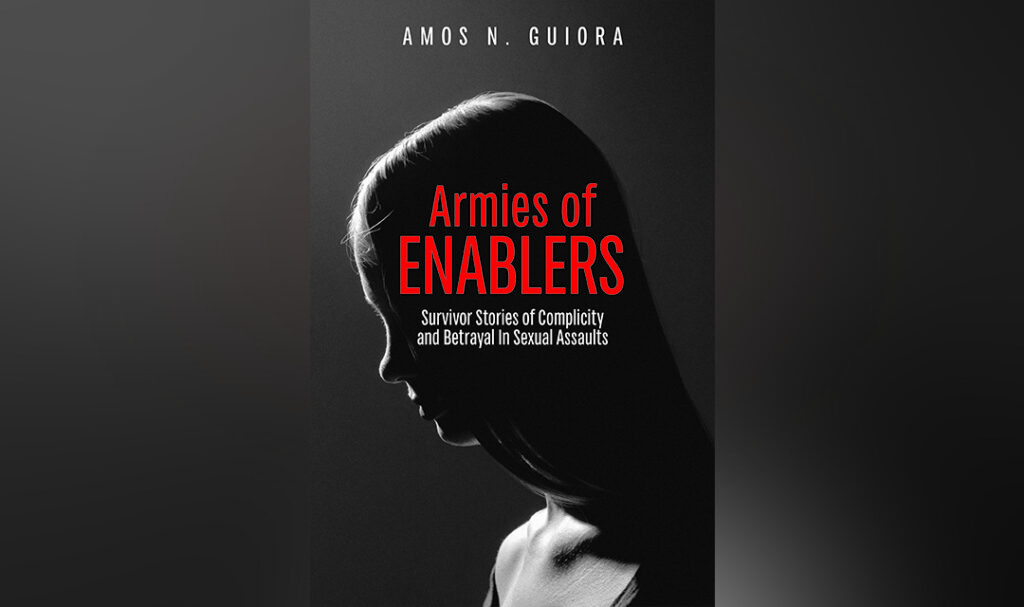
‘Armies of Enablers’ Were Complicit In Crimes
Author of Books on the Holocaust and sexual assault breaks down the failure of bystanders and institutional enablers
What are “Armies of Enablers?” When does silence turn into guilt? And what is the difference between a bystander and an enabler? Are both of them complicit in crimes?
I’ve looked at this problem from a number of points of view in my career, including in what I’ve written about the Holocaust. It’s why I was glad to speak to Author Amos N. Guiora, a law professor at the University of Utah. He’s broken down the various shades of complicity. He has written books about bystanders during the Holocaust and enablers of sexual assault in a modern context, including young women on the USA Gymnastics team.
As in his Holocaust book, he identified a triangle of complicity that connects the survivor with both the bystander and the enabler.
“In that sense, there is a clear connection between the two books,” he said. “I’m not focused at all on the perpetrator. I leave the perpetrator to others to write about. That doesn’t interest me. I asked the men and women whom I interviewed a question that is so obvious to me that hadn’t been previously asked. And that was, ‘What were your expectations of the neighbor?’”
And that is the reason the victims were eager to speak with him, he said. They jumped at the opportunity to talk about “the complicity of the institution” that was supposed to have protected them.
…
Guiora distinguishes between bystanders and enablers. Bystanders are physically present and have specific knowledge about a crime. “All we want the bystander to do is to dial 911,” he said.
The enabler, however, is somebody who knows the victim is in peril and either does nothing or actively discourages the victim from reporting the crime. In most of the victims he interviewed, he discovered that there were not only a few enablers, but “armies” of them.
You can read my interview with Amos N. Guiora in the Detroit Jewish News.